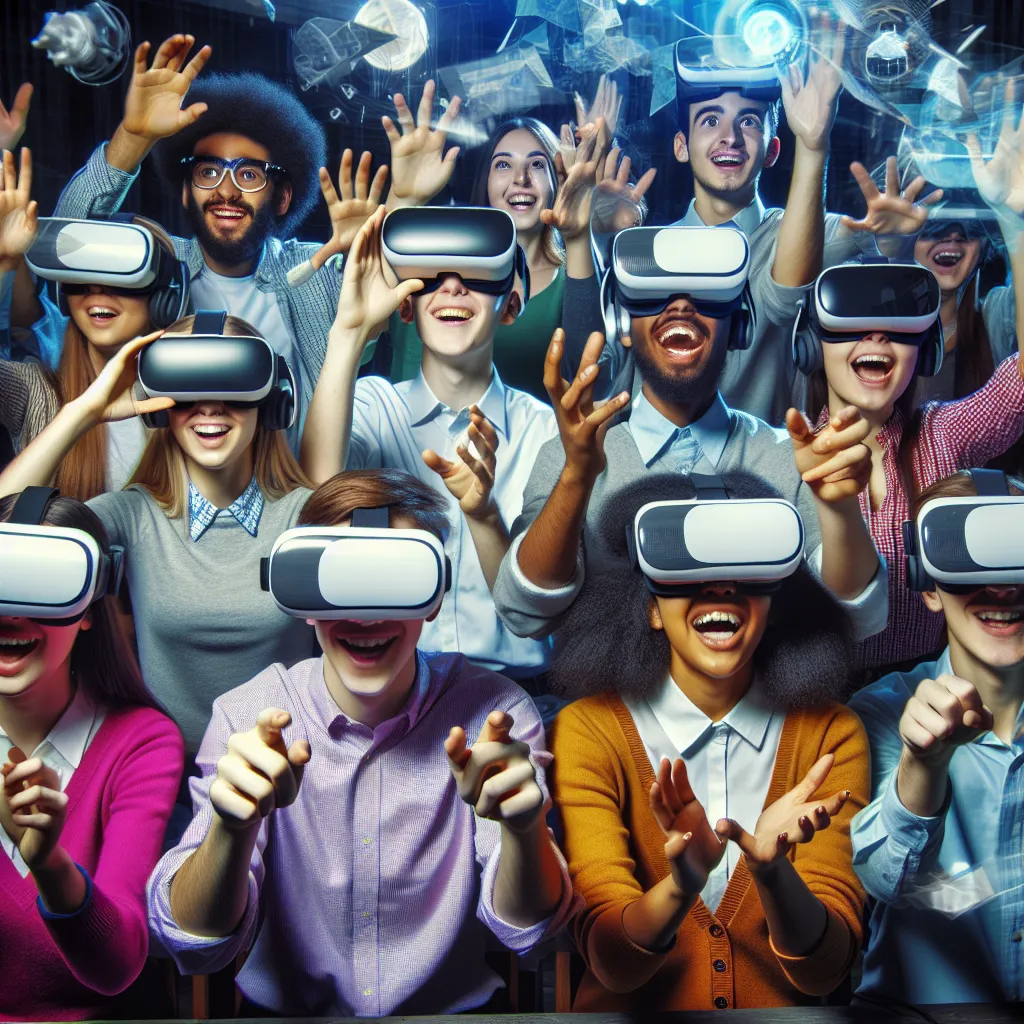Next-Generation Virtual Reality Training Tools Redefining Educational Landscape
Next-generation virtual reality training tools are redefining the educational landscape by revolutionizing the way individuals learn and acquire new skills. This innovative technology is poised to transform traditional educational methods by offering immersive and interactive experiences that engage users on a whole new level.
Virtual reality (VR) training tools leverage advanced simulations and interactive scenarios to create a dynamic learning environment. This enables learners to practice and apply their skills in a realistic and risk-free setting, leading to deeper levels of understanding and retention. By providing a hands-on approach to learning, VR training tools cater to diverse learning styles and preferences, making education more inclusive and effective.
Furthermore, the adaptability of VR training tools allows for personalized learning experiences, where individuals can progress at their own pace and focus on areas that require additional attention. This tailored approach not only enhances the learning outcomes but also reduces the time needed to master new concepts or skills.
In addition, the scalability of virtual reality training tools makes them applicable across various fields and industries, from healthcare and aviation to manufacturing and beyond. This versatility broadens the scope of educational opportunities and empowers learners to explore diverse career paths with hands-on training experiences.
As next-generation virtual reality training tools continue to evolve, they are set to become integral components of educational programs, professional development initiatives, and skill enhancement courses. The immersive and experiential nature of VR training tools is paving the way for a more dynamic and impactful learning journey, ultimately reshaping the educational landscape for the better.
The Evolution of Learning: How Virtual Reality is Transforming Education
The evolution of learning has always been strongly influenced by technological advancements. In recent years, virtual reality (VR) has emerged as a transformative tool in education, revolutionizing the way students learn and interact with information. By creating immersive and interactive learning environments, VR training tools are reshaping the traditional educational landscape.
Virtual reality technology allows students to transcend the limitations of traditional learning methods by providing experiential learning opportunities. Through VR simulations, students can explore historical events, conduct virtual science experiments, and engage in realistic training scenarios. This hands-on approach not only enhances comprehension but also improves retention of knowledge.
Moreover, VR training tools cater to diverse learning styles, making education more inclusive and accessible to all students. Visual, auditory, and kinesthetic learners can benefit from personalized learning experiences within a virtual environment. This versatility in learning modalities fosters a deeper understanding of complex subjects and cultivates critical thinking skills.
Furthermore, virtual reality promotes global connectivity and collaboration in education. With VR tools, students can engage in immersive virtual field trips and participate in real-time collaborative projects with peers from around the world. This interconnectedness expands students’ cultural awareness and fosters a sense of community in the learning process.
In conclusion, virtual reality is at the forefront of transforming education by providing an innovative approach to learning. Through immersive experiences, personalized learning, and global connectivity, VR training tools are shaping the future of education and preparing students for a technologically advanced world.
Harnessing the Power of Virtual Reality for Engaging and Effective Training
Virtual Reality (VR) has emerged as a powerful tool for transforming the landscape of training and education. By harnessing the power of VR, educators and trainers can engage learners in immersive experiences that simulate real-world scenarios, thus revolutionizing the learning process. The utilization of VR training tools has led to a significant shift in traditional learning methods, offering a dynamic and interactive platform for skill development.
One of the key advantages of VR training tools is their ability to create highly engaging and effective learning environments. By immersing participants in realistic simulations, VR enables them to apply theoretical knowledge to practical situations, thereby enhancing their understanding and retention of the material. This level of engagement is particularly valuable in industries such as healthcare, aviation, and emergency response, where hands-on experience is crucial.
Furthermore, the interactive nature of VR training tools allows learners to receive immediate feedback and guidance, promoting an iterative learning process. This real-time interaction not only facilitates skill development but also boosts confidence and decision-making abilities. Through VR, trainees can repeatedly practice complex procedures or scenarios in a risk-free environment, ultimately leading to improved performance and decreased error rates.
In addition to its efficacy, VR training tools offer a cost-effective and scalable solution for organizations. By simulating training scenarios in the virtual realm, companies can minimize the need for physical equipment and resources, thus reducing overall training costs. Moreover, VR enables geographically dispersed trainees to access uniform, high-quality training experiences, eliminating the limitations of traditional in-person training sessions.
In conclusion, harnessing the power of virtual reality for engaging and effective training has proven to be a game-changer in the education and professional development sectors. The immersive and interactive nature of VR training tools not only enhances learning outcomes but also addresses the evolving needs of modern learners. As technology continues to advance, the potential for VR to revolutionize learning experiences remains abundant, paving the way for a more dynamic and impactful approach to training.

